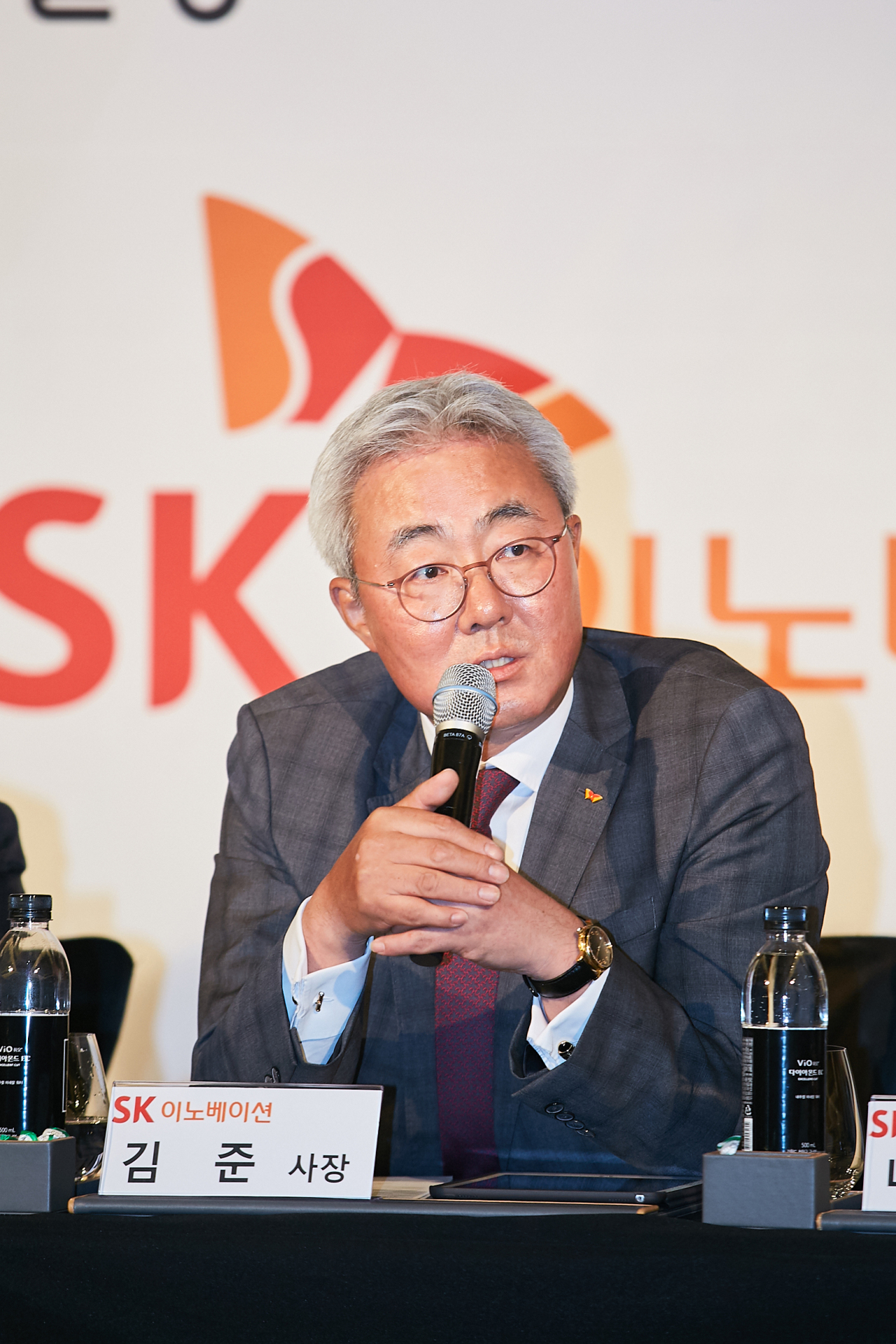SK Innovation, South Korea’s top oil refiner and third player in the electric battery market, announced Monday the company will expand its EV battery production capacity 20-fold by 2025, shrugging off concerns about a legal issue raised by competitor LG Chem.
During a press conference on the firm’s growth plan, SK Innovation CEO Kim Jun said the company was planning to ramp up its annual battery output from the current 5 gigawatt-hours to 100 GWh by 2025 with an aim to maintain its order backlogs at 700 GWh at the least.
“The battery industry is in the initial stage of growing, and our goal is to become the No. 3 player in the global market by 2025, which I believe is possible,” Kim said.
Regarding the latest dispute with LG Chem about alleged technology leaks via the hiring of former LG Chem employees, Kim said, “It’s a pity.”
“I can only say that we will deal with it well, and hope it doesn’t waver our employees as well as our customers,” he said. “There is no such concern yet.”
 |
SK Innovation CEO Kim Jun speaks during a press conference held in Seoul on Monday. (SK Innovation) |
Although he didn’t specify, the CEO said it was a shame considering “other players from China and Europe jumping into the battery industry.”
On April 29, LG Chem sued SK Innovation with a US court in Delaware and requested the US International Trade Commission to investigate into SK’s misappropriation of LG’s trade secrets.
In the suit, LG alleges SK is planning to use high-density manufacturing equipment involving some trade secrets of the company at SK’s new battery plant in Georgia, which broke ground in March and is still under construction.
On the other hand, SK claims its EV battery manufacturing technology is totally different from that of LG Chem. The company cites its cathode material proportion of 8-to-1-to-1, pointing to LG’s main 7-1-2, or 6-2-2. The ratio refers to the proportions of nickel, cobalt and manganese used for the cathode in a battery.
According to Rhee Jang-weon, head of battery R&D at SK Innovation, the company will start solely supplying 8-1-1 batteries from third quarter of this year without mixing the product with other products like 5-2-3 or 6-2-2.
CEO Kim also said the firm would complete development of the NCM ratio of 9-1/2-1/2 (or “Nine half half”) by the end of this year, and start commercialization in 2022.
By Song Su-hyun (
song@heraldcorp.com)








